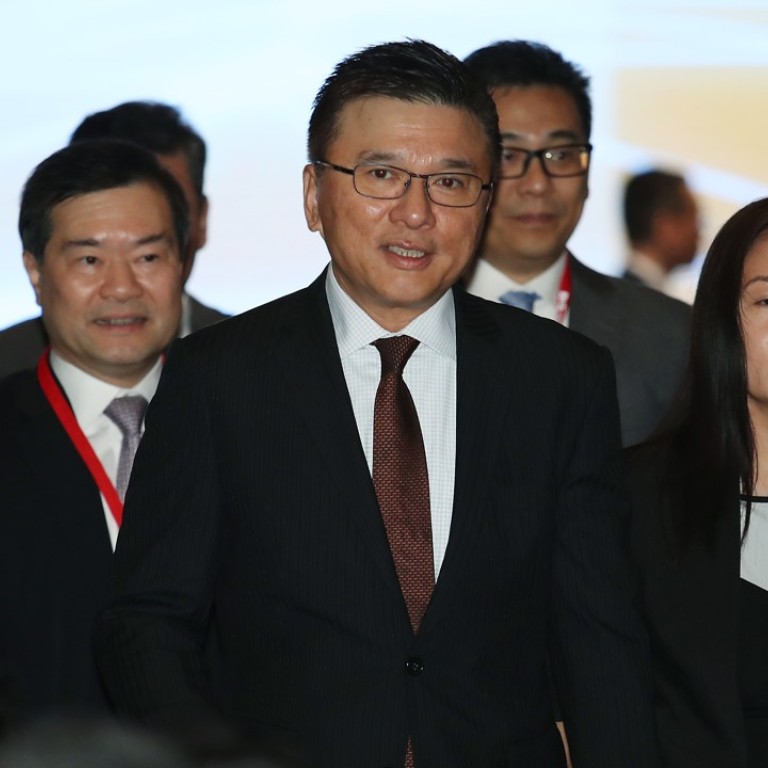
Outgoing finance secretary Chan Ka-keung supports start-ups board and future fintech innovators
Professor Chan is going back to university to help the next generation of tech wizards after 10 years as a minister
Outgoing Secretary for Financial Services and the Treasury Chan Ka-keung said he supports proposals to launch a new board for start-ups on the stock exchange, as he turns his attention to helping students to carry out research in financial technology.
Chan, whose 10-year career as a minister comes to an end on Friday, will return to where he came from - Hong Kong University of Science and Technology. He told the Post he has no title yet but the job would involve research and teaching related to fintech.
Before joining the government a decade ago, he was dean of business management at the university.
“When I first joined the government, I planned to work for a term of five years only, but eventually I served two terms and have worked for 10 years. It is time to make a change in my career,” said Chan.
Chan, 60, now plans to focus on fintech related research and study in an effort to encourage more youngsters to innovate and develop technologies that will help banks, brokers and insurance companies to do business and provide better services more securely and at a cheaper cost.

“I would support the stock exchange in introducing a new board to attract start-ups and dual-share structure companies to list in Hong Kong as long as they could introduce investor protection measures to safeguard the interests of the investors,” he said.
Hong Kong Exchanges and Clearing (HKEX) issued a consultation paper two weeks ago proposing a third board – in addition to the main board and the Growth Enterprise Market – which would have more flexible rules to attract ‘new economy’ companies to list.
The new board would offer two markets – one for mega listings of big companies that have the dual-share structure favoured by many technology firms, which could be traded by all investors – and the other for start-ups which would be accessible only to professional investors.

For the board designed for dual-class structure companies, he said if it allowed retail investors to trade, measures should be put in place to protect the investors.
Dual-class shareholding structures are favoured by technology giants such as Facebook and Google as their founders own a minority stake but want to maintain control. They issuance of two classes of shares allows the founders more voting rights than other shareholders.
“Singapore and some other markets have this sunset clause for the dual-class shares structure to protect the interests of investors,” said Chan.
Hong Kong is going to continue to play an important role in China’s internationalisation of renminbi
Before joining the government, Chan had spent his entire career in academia. After winning a scholarship in Hong Kong at the age of 18, he received a bachelor’s degree in economics from Wesleyan University, and both his MBA and PhD in finance from the University of Chicago.
He taught for nine years at Ohio State University, before taking up a role at the Hong Kong University of Science and Technology in 1993, eventually becoming dean of business management. He joined the government as secretary for financial services and the treasury in 2007.
Looking back over his past decade as a minister, he is most proud of promoting the yuan business in Hong Kong and overseeing the launch of the two stock connect schemes linking HKEX with the Shanghai and Shenzhen bourses.
“Hong Kong is a leading offshore yuan centre. It is going to continue to play an important role in China’s internationalisation of renminbi. The two stock connects have promoted cross-border trading and enhanced Hong Kong’s role as an international financial centre.”
James Lau, former undersecretary for financial services and the treasury, will succeed Chan.

